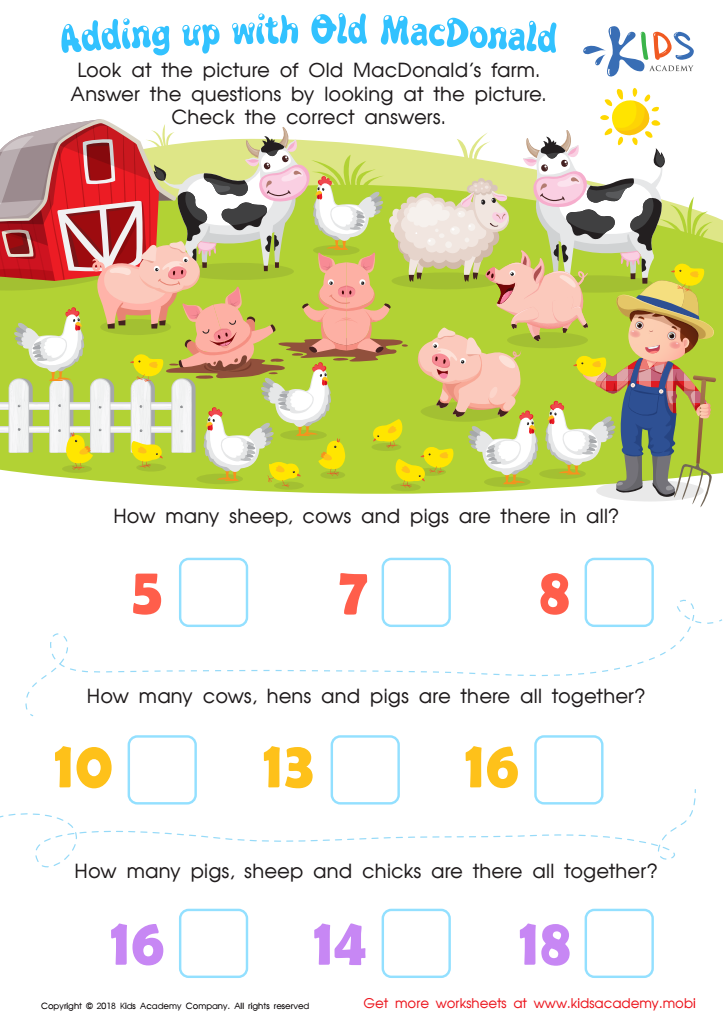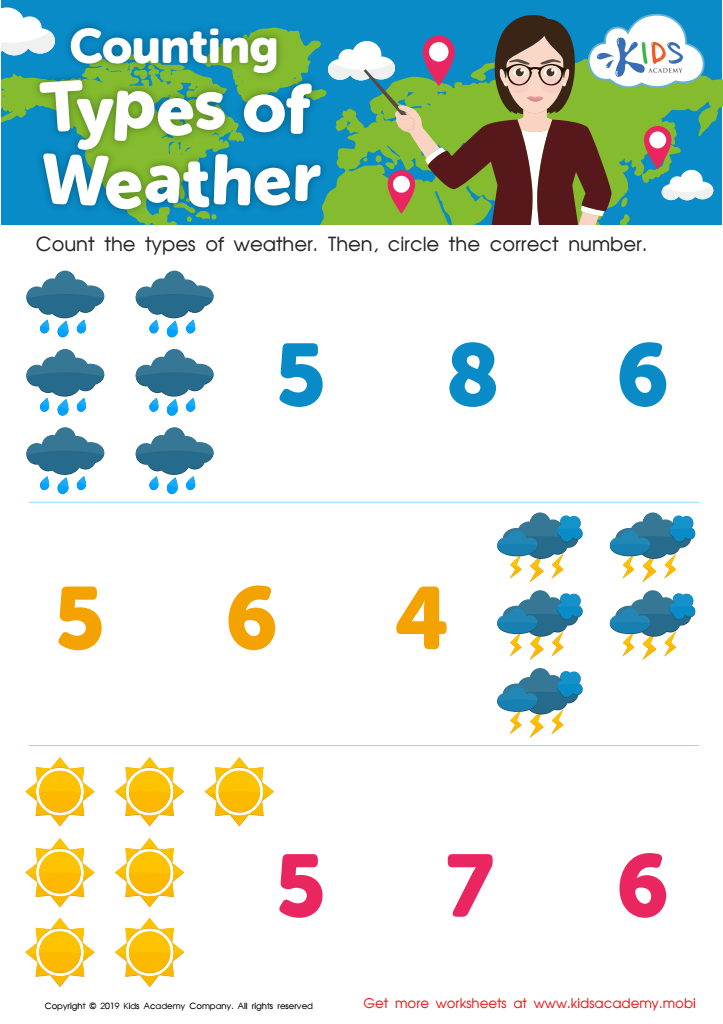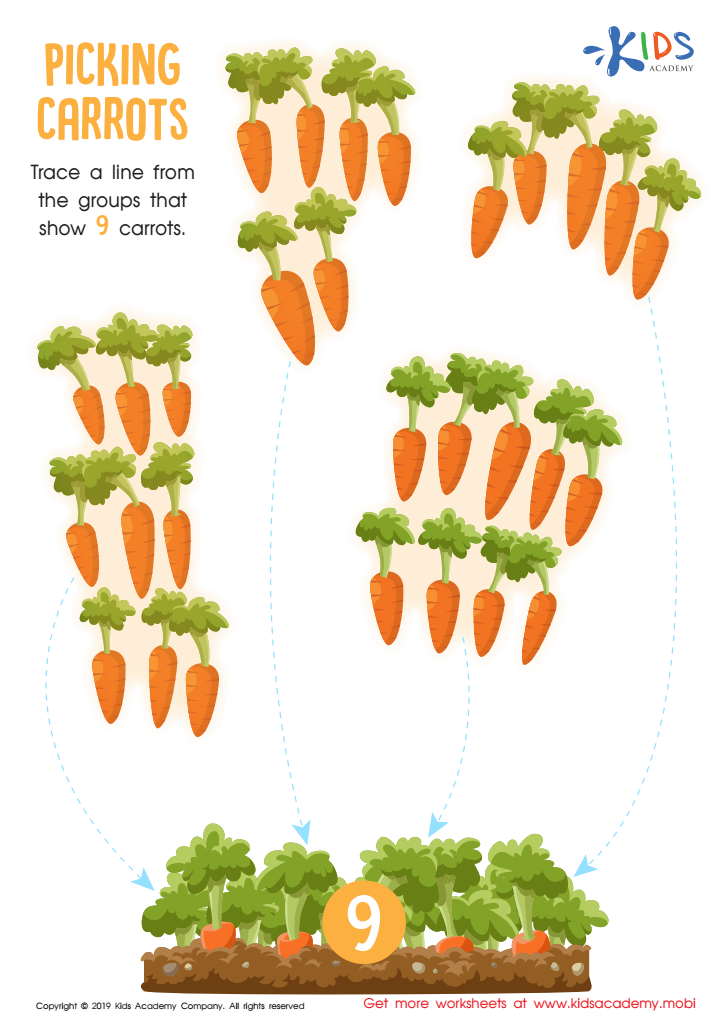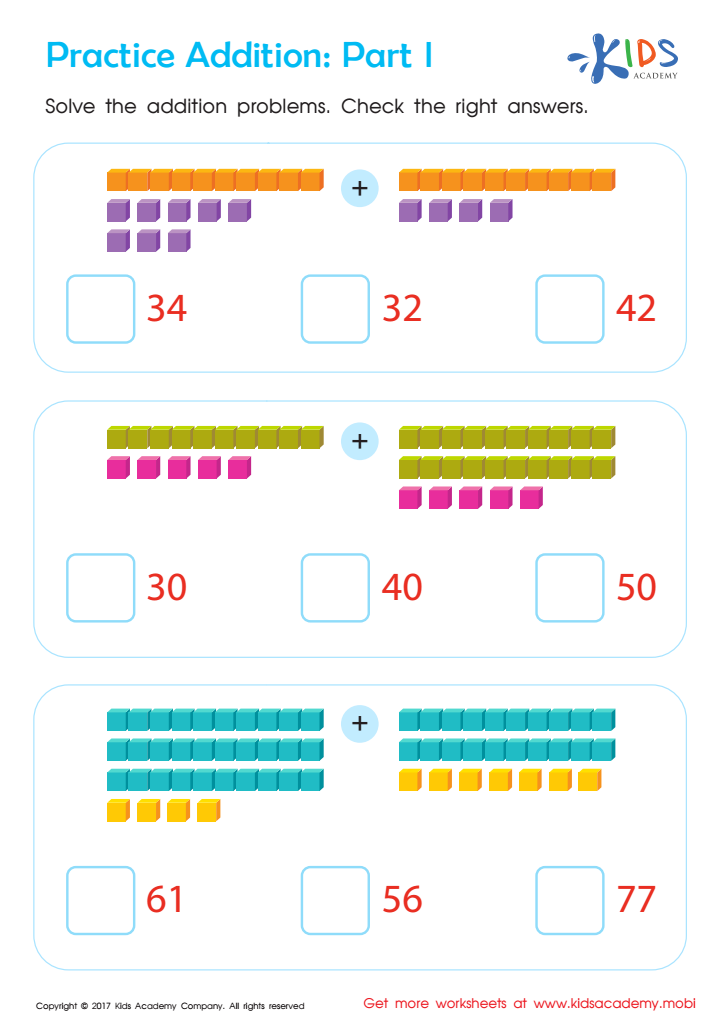Basic Arithmetic Easy Numbers Worksheets for Ages 5-8
4 filtered results
-
From - To
Discover our Basic Arithmetic Easy Numbers Worksheets designed specifically for children ages 5-8! Our engaging worksheets focus on foundational math skills, helping young learners grasp essential concepts like addition, subtraction, and number recognition. With colorful illustrations and interactive activities, these worksheets keep learning fun and enjoyable. Perfect for at-home practice or classroom use, they cater to diverse learning styles and help boost confidence in early math skills. Encourage your child's growth in mathematics with our carefully crafted resources that promote independent learning and critical thinking. Start exploring our collection today to make math an exciting adventure for your little one!


Adding Up with Old MacDonald Worksheet


Counting Types of Weather Worksheet


Picking Carrots Worksheet


Practice Addition: Part 1 Worksheet
Parents and teachers should prioritize Basic Arithmetic for children aged 5-8 because this foundational skill is critical for their overall cognitive development and future math success. Understanding basic arithmetic—addition, subtraction, and number recognition—serves as the building blocks for more complex mathematical concepts they'll encounter in later grades. At this age, children are naturally curious and eager to learn; introducing math in a fun and engaging manner fosters a positive attitude toward the subject.
Further, mastering easy numbers helps children develop essential problem-solving skills and logical thinking, which are vital in everyday life. By grasping these concepts early on, children gain confidence in their ability to tackle mathematical challenges, reducing anxiety as they progress in their education.
Additionally, strong arithmetic skills enhance critical thinking and help with skills necessary for other subjects, such as science and even reading comprehension through pattern recognition and sequencing. For parents and educators, investing time in these elementary skills not only solidifies children's foundational knowledge but also sets the stage for lifelong learning and academic success. Supporting children in learning basic arithmetic reinforces their development, ensuring they thrive in both formal education and everyday contexts.
 Assign to My Students
Assign to My Students



















